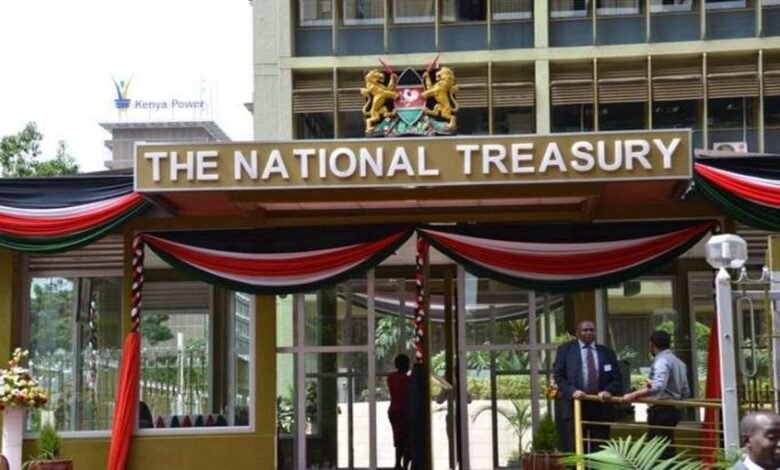
The Central Bank of Kenya (CBK) is implementing reforms in the government bond market by designating major local banks as market makers and liquidity providers.
It is part of an initiative supported by the International Monetary Fund (IMF) and World Bank to deepen the secondary government securities market and enhance trading transparency.
Key elements of the proposed changes include top commercial banks with strong capitalization to provide continuous two way bond quotations during trading hours.
There will be a required minimum quotes of Ksh.20 million ($155,000) per trade, with increments of Ksh.50,000, and set bid ask spread capped at 25 basis points.
Also, obligatory trading hours with continuous quoting will be between 9:30 am and 2:30 pm, and a six to nine month pilot program, after stakeholder consultations on draft over the counter (OTC) rules.
Currently, banks account for roughly 45% of Kenyan government domestic debt holdings (~Ksh.2.83 trillion) followed by pension funds (28.8%) and insurance firms (7.3%).
Also Read: How Kenya’s Treasury Bills, Bonds Market Performed in January 2025
This is important because CBK is looking at enhancing liquidity – ensuring active pricing and ease of trading for benchmark government bonds, improve price transparency, reducing information asymmetry in secondary markets, accelerate access to cash – bondholders can more swiftly convert holdings into cash and support monetary and fiscal policy – by lowering borrowing costs and attracting foreign investmen.
The program addresses the ongoing rebalancing of credit markets in Kenya, where banks have been shying away from private credit in favor of government bonds.
As lending to the private sector declined—down 1.4% in late 2024—private entities struggled to access capital, partly due to banks preferring low-risk government securities.
The bond reform will formalize banks’ role in secondary trading of government bonds through a regulated market-maker pilot program.
It seeks to foster a more liquid and transparent treasury bond market—benefiting both institutional and retail investors by ensuring continuous pricing and tighter spread controls,






Akustik su kaçağı tespiti Üsküdar’da su kaçağı tespiti konusunda aradığım güvenilir firmayı buldum. https://nextforbes.com/uskudar-su-kacagi-tespiti-hizli-ve-guvenilir-cozumler/
Üsküdar su sızıntısı onarımı Kombimizi monte ettiler ve tüm sistemi gözden geçirdiler. Oldukça detaylı ve titiz çalışıyorlar. https://www.kammar.pl/uskudar-su-kacagi-bulma/
Good article and right to the point. I am not sure if this is truly the best place to ask but do you people have any thoughts on where to hire some professional writers? Thx 🙂
**mindvault**
mindvault is a premium cognitive support formula created for adults 45+. It’s thoughtfully designed to help maintain clear thinking
hi!,I like your writing so much! share we communicate more about your article on AOL? I require a specialist on this area to solve my problem. Maybe that’s you! Looking forward to see you.
I?¦m now not positive the place you’re getting your information, but great topic. I must spend some time learning much more or understanding more. Thanks for wonderful information I was in search of this info for my mission.
I’d have to check with you here. Which isn’t something I often do! I take pleasure in studying a publish that will make individuals think. Also, thanks for allowing me to comment!
I’m still learning from you, while I’m improving myself. I definitely love reading all that is written on your blog.Keep the tips coming. I liked it!